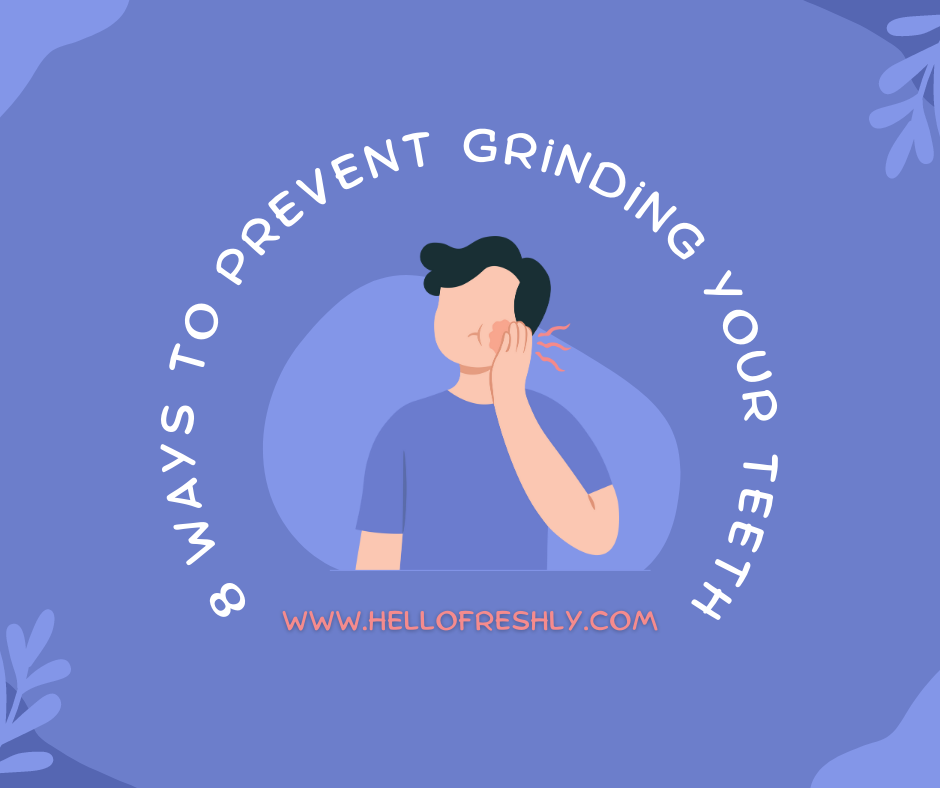Teeth grinding, also known as bruxism, is a pretty common condition that affects approximately 20% of the world’s population. It happens when your teeth are grinding against each other even when you’re not eating anything, which cause dental problems with your teeth and gums and prevent healthy teeth. Over time, bruxism can develop into more serious problems like facial drooping, difficulty eating, and serious toothaches.
For that reason, it’s important to prevent teeth grinding as early as possible by identifying its root causes and protecting your teeth from further damage. Below are some ways you can address your teeth-grinding problem if you have one.
1. Wear a Mouth Guard
If you can’t prevent yourself from grinding your teeth, the very least you can do is prevent your teeth from getting damaged by wearing mouthguards. This is what people who grind their teeth typically do first when they want to stop racking up their dental bills.
Your dentist will first take impressions of your mouth. That way, the mouth guard will fit your mouth perfectly and can’t be removed easily if you move around a lot during sleep.
Keep note, however, that if you stop wearing your mouthguard at any time, you’ll still be grinding your teeth. It doesn’t stop teeth grinding—it just prevents damage.
2. Have a Normal Bite
Some people have natural overbites or underbites. Some people also have teeth that have grown higher or lower than other teeth. If these are the root causes of your bruxism, then it would be a good idea to remedy them with braces or retainers. If your dentist highly recommends it too, you could even get reductive coronoplasty to level out the surfaces of your teeth. This will hopefully stop you from grinding your teeth subconsciously.
3. Get Botox
Botox, as the name suggests, is a toxin that prevents your body from certain things. You may already recognize its usage in the beauty industry as a paralyzer for the face. It prevents signs of aging like wrinkles and sagging to make you look younger.
But did you know that Botox can also be used for bruxism? Because your face will be unable to move properly, this can prevent unconscious bruxism caused by conditions like autism.
Just keep in mind that Botox is temporary and only lasts a few months. There are also side effects of Botox like difficulty swallowing and muscle weakness.
4. Take Muscle Relaxants
Like Botox, muscle relaxants can be used to relax your muscles enough to not want to grind your teeth during the night. Keep note of the word night as muscle relaxants should not be used during the day—it can impair your ability to walk around and drive!
Make sure to consult with your doctor first, too. Some muscle relaxants will interfere with other medications, and some people should not use muscle relaxants at all due to underlying health conditions.
5. Relieve Stress and Anxiety
One reason behind constant teeth grinding is stress and anxiety. Whether we’re having a spat with our significant other, dealing with an annoying project at work, or hosting high-maintenance family members in your home, all these can amp your stress and anxiety and cause you to grind your teeth.
There are many ways to deal with stress and anxiety, so experiment to see what works best for you. Some like to do high-intensity workouts to be so tired they can’t feel stressed. Others practice meditation, hang out with friends, see a therapist, or do hobbies they love.
6. Slow Down Before Bed
Make it a habit to get ready for bed every night. Spend an hour or so relaxing and unwinding to get your mind and body ready to drift off into dreamland. This will help prepare your teeth to relax and not grind against each other too.
Like relieving stress and anxiety, there are many ways to get ready for bed. Some like to turn on white noise machines or ASMR videos to relax them. Others like to drink a cup of tea or milk. It’s also a good idea to limit your gadget use before bed too—no cellphones or laptops before bed!
7. Refrain from Chewing Non-Food Items
When we constantly chew things that aren’t food, our bodies turn it into a habit and start grinding our teeth when there isn’t anything to chew. For that reason, please refrain from chewing non-food items like chewing gum or ice cubes. These will only make your bruxism worse.
If you want to take it a step further, refrain from eating hard-to-eat foods too. Foods that are too sticky or too chewy can also worsen your bruxism.
8. Do Tongue and Jaw Exercises
Doing tongue and jaw exercises may help to relieve tension in your mouth and prevent your body’s innate urge to grind your teeth. One notable example is by holding the tip of your tongue against the roof of your mouth and opening your mouth as wide as it can go then closing it. Twisting your lips this way and that way can also stretch out those muscles.
